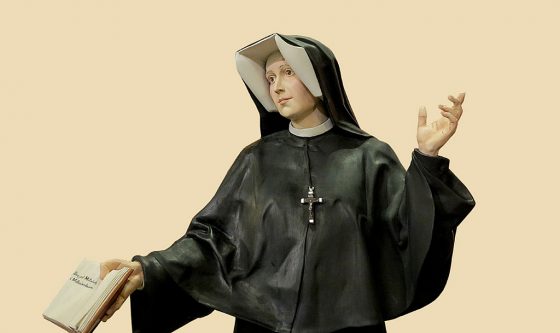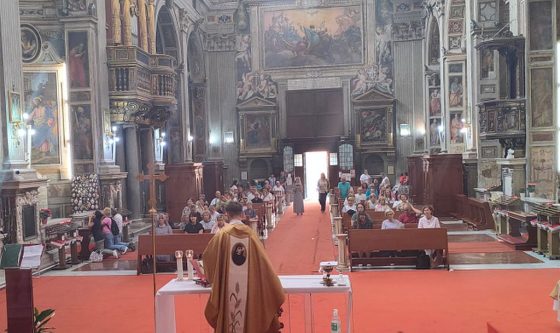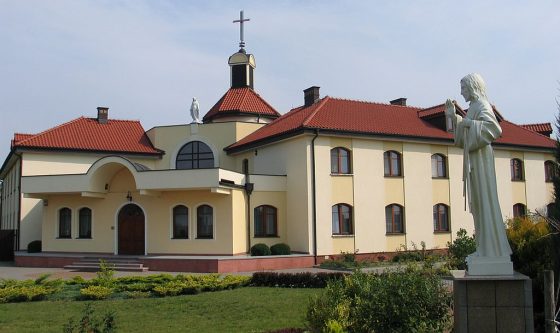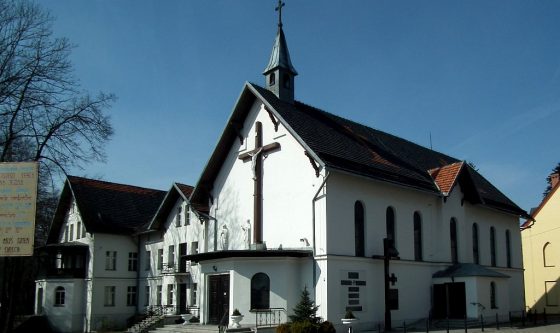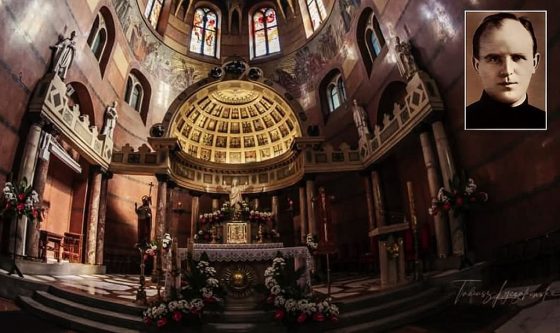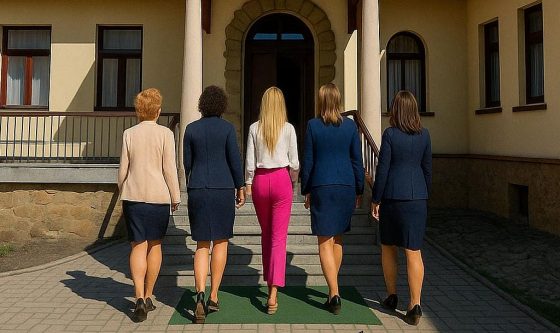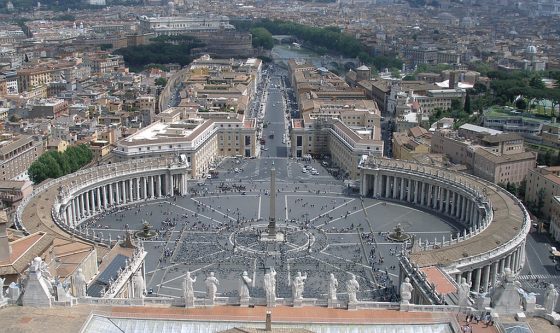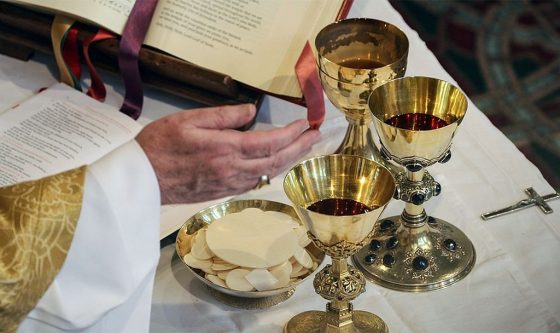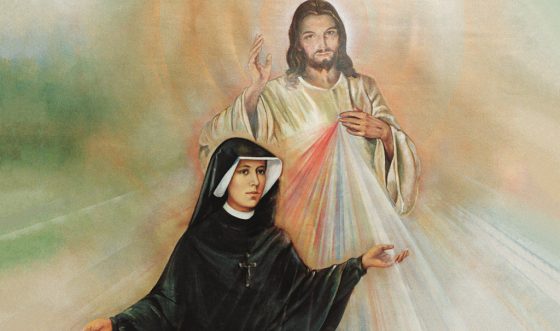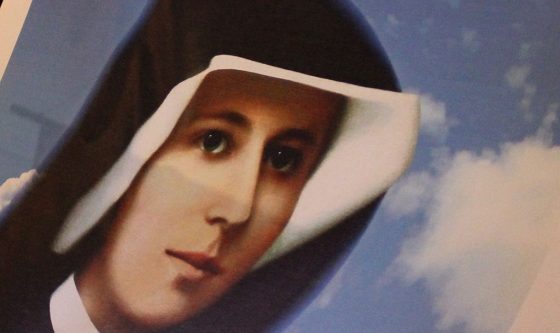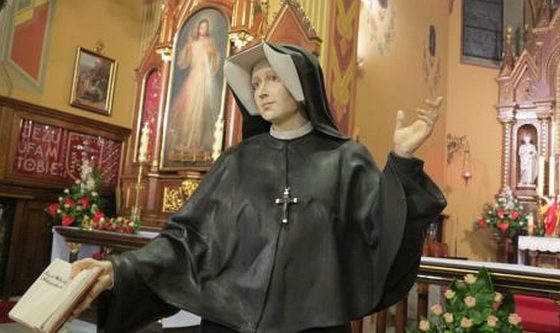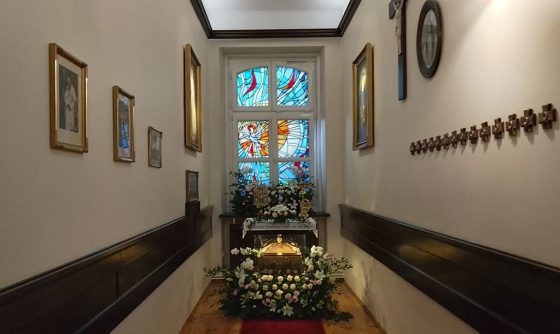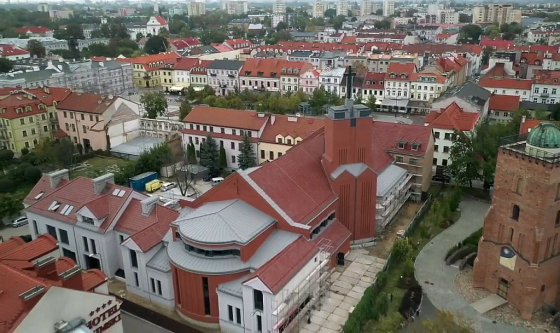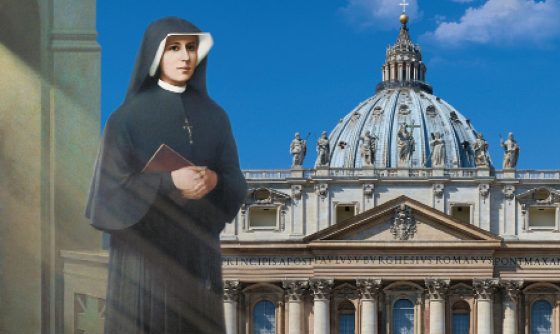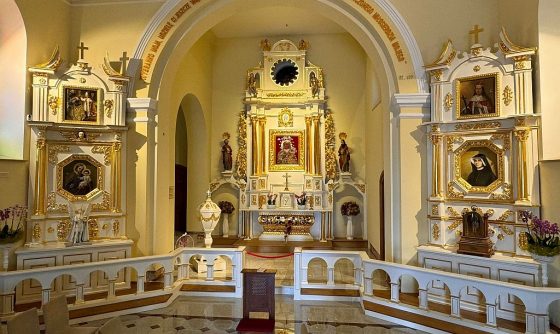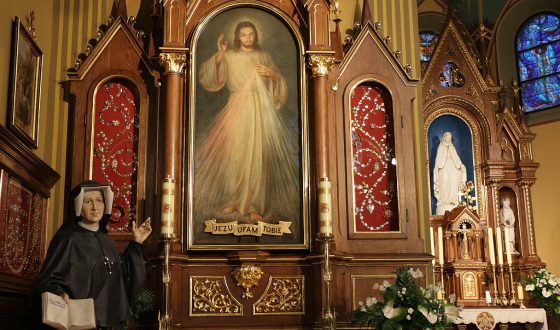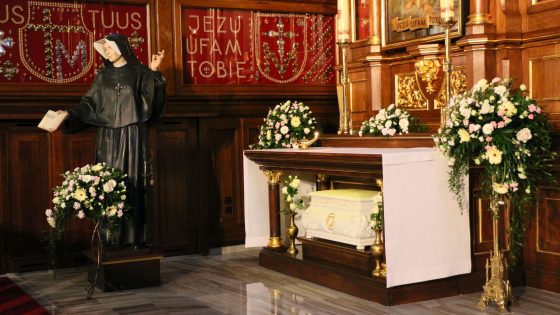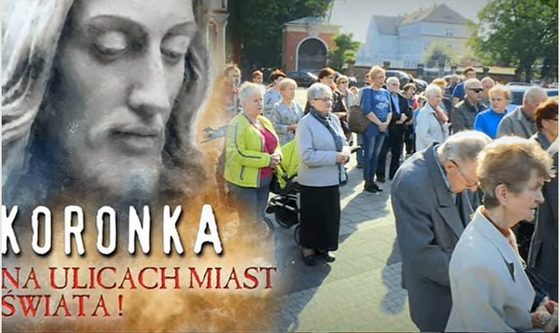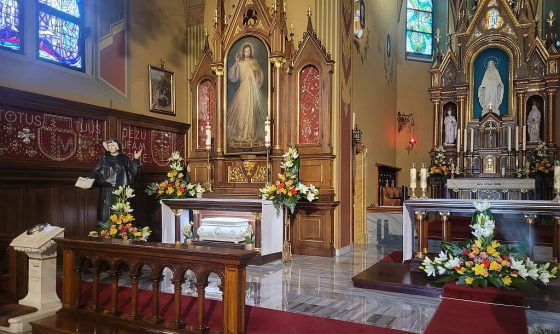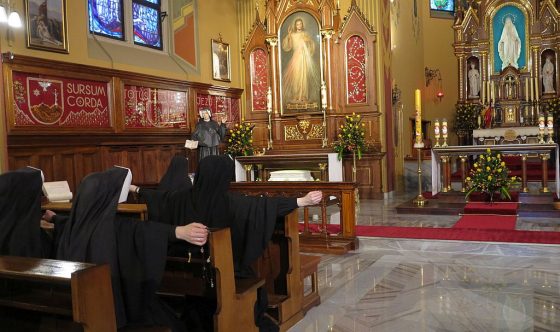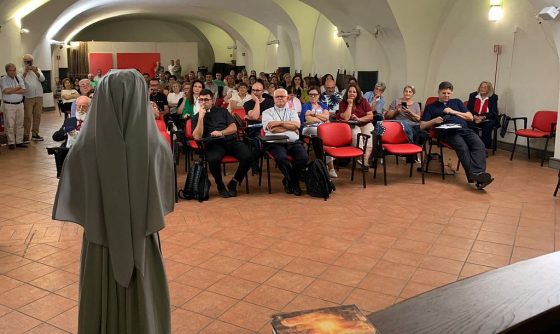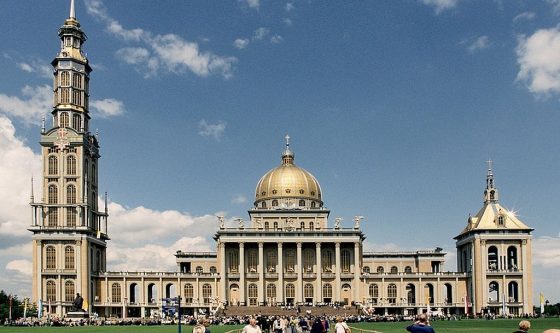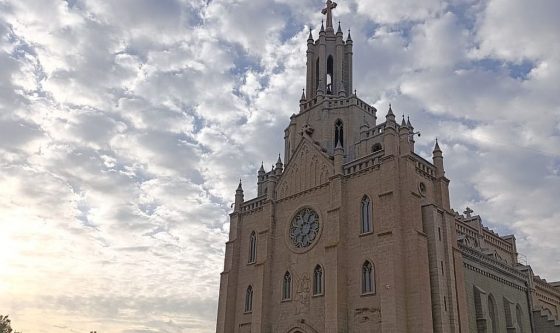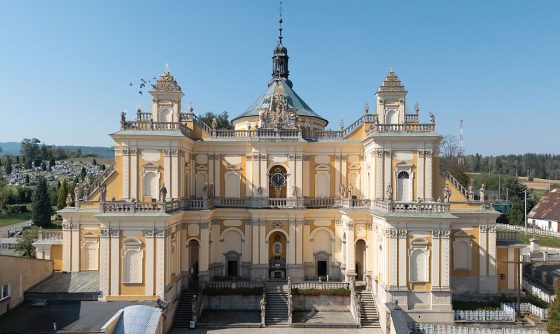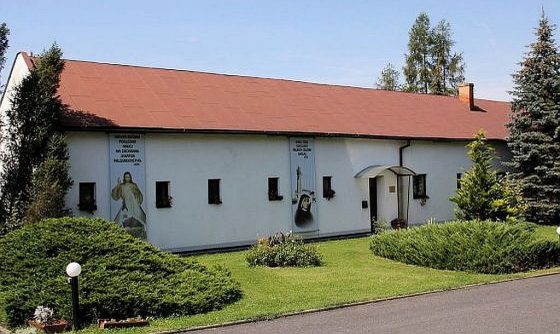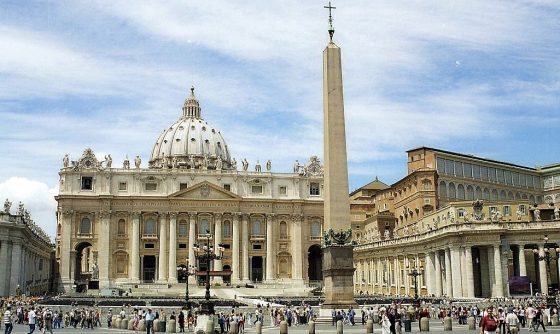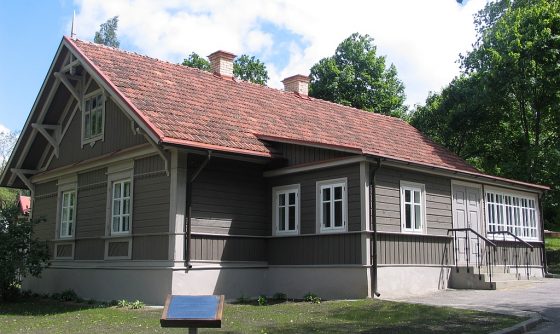Day 1 – Friday, October 3, 2025
09:00 am– Registration of participants in the Auditorium of John Paul II
11:30 am – Holy Mass in the Chapel of Merciful Jesus and the tomb of St. Faustina
12.30– Lunch break (possibility to buy lunch on your own in the restaurant in the grounds of the Shrine)
02:00 pm – Beginning of the meeting in the Auditorium of John Paul II
03:00 pm– Hour of Mercy and the Chaplet of Divine Mercy in the Chapel of Merciful Jesus and the tomb of St. Faustina or in the Basilica
03:45 pm
SESSION 1 in the Auditorium of John Paul II
led by Rev. Prof. Witold Ostafinski
PANEL discussion 1
- “I am love and mercy itself.” God’s self-revelation in St. Faustina’s “Diary” in the context of biblical self-revelations – Rev. Prof. Henryk Witczyk
- “Mercy is God’s greatest attribute” – Rev. Dr. Hab. Stanisław Witkowski MS
The influence of St. Faustina on the life of the Church:
Bishop Mar Anthony Chirayath from India
Bernadette Lam from Hong Kong
– Coffee break
PANEL discussion 2
- “The greater the sinner, the greater his right to Divine mercy” – Rev. Prof. Jan Orzeszyna
- The grace of complete remission of sins and punishment in the light of Canon Law – Fr. Robert Lezohupski, OFM Conv.
- The grace of complete remission of sins and punishment in the light of the Summa Theologiae of St Thomas – Fr. Dr. Michal Mrozek OP
06:30 pm – Dinner break (possibility of buying your own evening meal in the restaurant in the grounds of the Shrine)
07:45 pm – Worship of Divine Mercy in the Basilica
Day 2 – Saturday, October 4, 2025
09:00 am
SESSION 2 in the Auditorium of John Paul II
led by Rev. Prof. Andrzej Witko
PANEL discussion 1
- “My mercy increases as it is being dispensed” – Bishop Prof. Henryk Wejman
- “I am the King of Mercy.” Jesus’ self-revelation – Rev. Prof. Jan Dziedzic
The influence of St. Faustina on the life of the Church:
Rev. Kazimierz Chwalek from the USA
Rev. Canon Jason Jones from Wales
– Coffee break
PANEL discussion 2
- The Charismatic Dimension of the Church in the writings of St. Faustina. The Church as the Mystical Body of Christ – Rev. Dr. Slawomir Czajka
- Dimensions of experiencing the Eucharist in the writings of St. Faustina – Sr. Prof. Adelajda Sielepin CHR
12:00 pm – Holy Mass in the Basilica
13.15 – Lunch break (possibility to buy lunch on your own in the restaurant in the grounds of the Shrine)
– Visit to the cell of St. Faustina by the Conference participants
03:00 pm – Hour of Mercy and the Chaplet of Divine Mercy in the Chapel of Merciful Jesus and the tomb of St. Faustina or in the Basilica
03:45 pm
SESSION 3 in the Auditorium of John Paul II
led by Rev. Dr. Slawomir Czajka
PANEL discussion 1
- “I rejoice in God within me.” Contemplation in everyday life – Rev. Prof. Jerzy Gogola OCD
- Mary, Mother of Incarnate Mercy in the writings of St. Faustina and the history of the devotion of the Mother of God – Dr. Faustyna Skupien
The influence of St. Faustina on the life of the Church:
Rev. Alberto Arturo Gómez López from Spain
Rev. Kamil Zylczynski from Australia
– Coffee break
PANEL discussion 2
- Convergence of the message of the encyclical “Dives in misericordia” and the “Diary” of St. Faustina – Rev. Prof. Henryk Slawinski
- Charism of St. Faustina – Sr. M. Elzbieta Siepak ISMM
06:15 pm – Dinner break (possibility of buying your own evening meal in the restaurant in the grounds of the Shrine)
07:00 pm – Film “Faustina in the Light of Mercy” and meeting with the director in the Auditorium of John Paul II
Day 3 – Sunday, October 5, 2025
09:00 am
SESSION 4 in the Auditorium of John Paul II
led by Rev. Prof. Jan Machniak
PANEL discussion
- Saint Faustina, the forerunner of the Second Vatican Council – Rev. Dr Hab. Bogdan Zbroja
- The Message of Mercy in the Image: “Jesus, I trust in You” – Rev. Dr. Piotr Szweda MS
- Doctor of the Church – Fr. Dr Hab.Szczepan Praskiewicz OCD
– Coffee break
– Summary and conclusion of the conference
12:30 pm
– Holy Mass and Ceremony of acceptance of new members to the “Faustinum” Association in the Chapel of Merciful Jesus and the tomb of St. Faustina.











